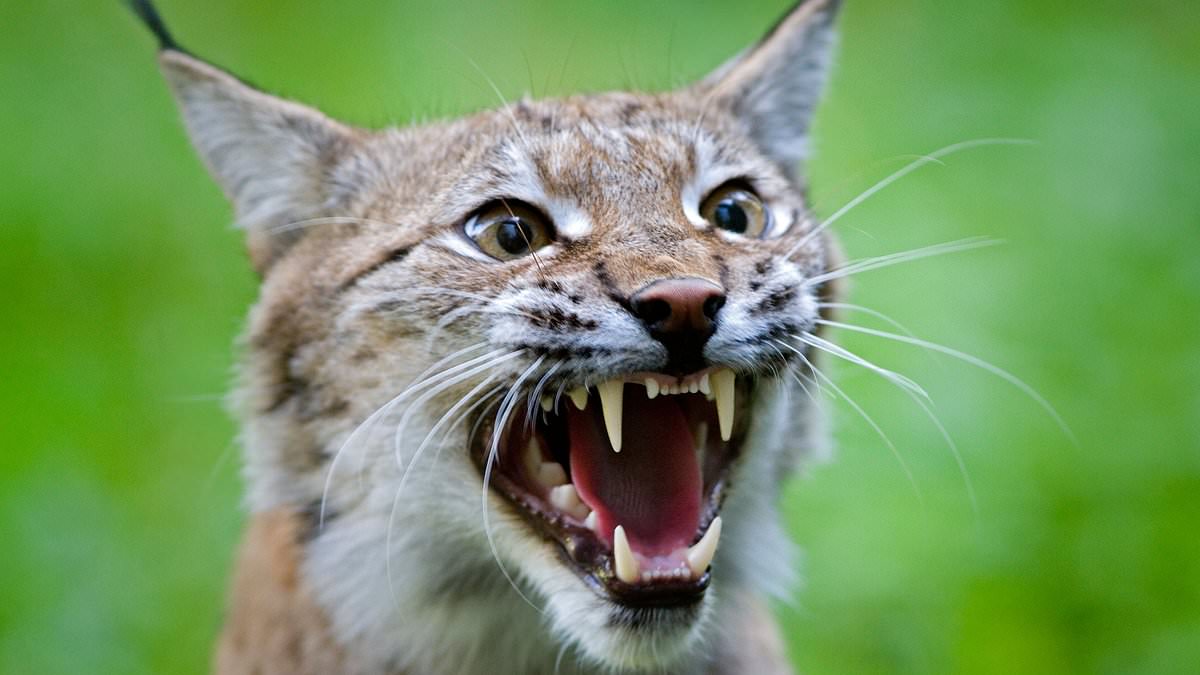Police have launched a probe after two more lynx were spotted in the wild in the Highlands this morning.
It follows the illegal release and capture earlier this week of two of the cats in the area.
Police are linking the two incidents and have warned the public not to approach them.
The latest pair to be spotted were seen at Killiehuntly, near Kingussie, Inverness-shire – where the other pair were found on Wednesday.
Police said: ‘Around 7.10am on Friday, 10 January, we received a report of another two lynx being seen in the Dell of Killiehuntly area near Kingussie.
‘Members of the public are asked not to approach the animals and officers are working with specially trained personnel to capture them.
‘Enquiries suggest the sighting is connected with a release of two lynx seen in the same area on Wednesday, 8 January. They were safely captured on Thursday, 9 January.
‘Enquiries are continuing to establish the full circumstances of both sightings.
‘If anyone saw anything in the area or has any information then please call Police Scotland on 101, quoting incident number 0387 of Friday, 10 January, 2025.’
It follows the capture of the other two apex predators that had been spotted roaming free within the Cairngorms National Park.
Police and staff from nearby Highland Wildlife Park, which condemned the ‘highly irresponsible’ act, were called in to track the big cats after they were seen in the Drumguish area, near Kingussie.
Officials revealed that after a night-long hunt, the animals, which are known to prey on small mammals, birds and livestock, were humanely caught in baited traps.
They will now be transferred to Edinburgh Zoo where they will spend the next month in quarantine as staff assess their health and wellbeing.
Police Scotland said officers were continuing to investigate who was responsible for releasing the animals, which had no connection to the park, and which experts fear would have died had they been left to fend for themselves.
The animals were found near straw bedding which contained ‘dead chicks and porcupine quills’.
